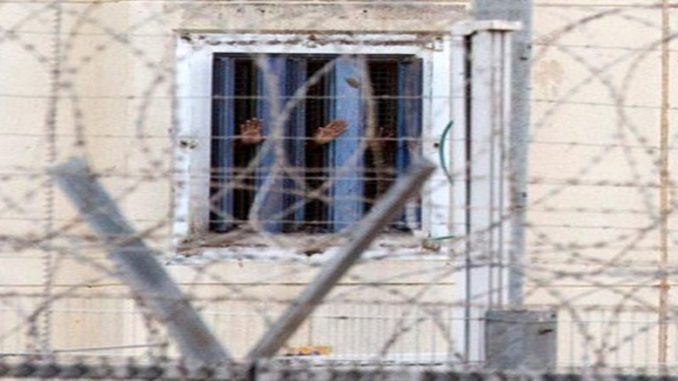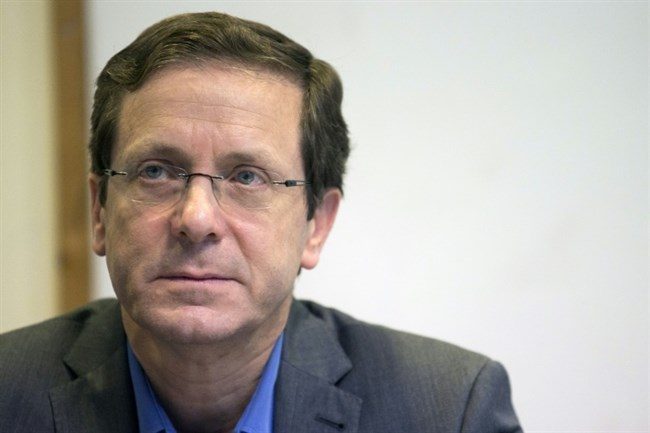
Israel’s parliament, the Knesset, moved forward on Wednesday with a bill that would see the Israeli government cease to transfer an estimated 1 billion shekels ($280 million) per year to the Palestinian Authority (PA) over the controversial “martyrs” compensation program that provides financial allowances to Palestinians imprisoned by Israel and their families.
Israeli media reported that the Knesset plenum approved a preliminary reading of the bill, with some 48 Knesset members voting in favor of the bill and 13 opposing it.
The vote came amid contradicting reports from Israeli, Palestinian, and US officials regarding the status of the payments, which are part of a social program managed by the Palestine Liberation Organization (PLO) that provides financial allowances to Palestinians imprisoned in Israel and their families, those injured by Israeli forces, and families of Palestinian “martyrs” — those killed by Israeli forces, whether during attacks against Israelis or in situations in which they were void of wrongdoing.
Israeli daily Haaretz reported that US Secretary of State Rex Tillerson made a significant switch on the US position on the issue, saying on Wednesday that the US was in the midst of an “active discussion” with the PA on the issue, while on Tuesday he had declared that the PA had completely changed its policy.
In response to Tillerson’s comments, both Israeli and Palestinian officials denied that any policy had been changed, despite Tillerson saying Wednesday that the assurances of Palestinian officials “were given to me during the President’s visit to Bethlehem.”
Haaretz quoted Issa Qaraqe, head of the Palestinian Committee of Prisoners’ Affairs as saying that “no such decision could ever possibly be made, since it would spell the end of the PA with the Palestinian public.”
“Almost every other household among the Palestinian people is the family of a prisoner or martyr,” Qaraqe told Haaretz. “Anybody who thinks he can execute a decision like that is badly wrong.”
Haaretz also quoted who they identified as a senior Israeli official, as saying they were not aware of any change in PA policy.
During Wednesday’s reading in the Knesset, Israel’s Deputy Defense Minister Eli Ben Dahan of the right-wing Jewish Home party said “it cannot be that with one hand, they (Palestinians) seek to make peace with Israel, while they continue to fund terrorists with the other,” according to the Times of Israel.
“The first stage of normalization with the Palestinian Authority will be severing [its ties] with terrorism,” Dahan said.
Meanwhile, MK Yousif Jabarin of the Joint List political bloc — representing parties led by Palestinian citizens of Israel — condemned the bill as draconian, saying “it is collective punishment against the entire Palestinian population. There are nearly no families that don’t have a relative that is a political security prisoner.”
MK Ahmad Tibi of the Joint List told Ma’an in April that the bill was part of a campaign that Israel was launching against Palestinian prisoners while attempting to exert pressure on Palestinian governmental institutions’ already shaky financial status.
The social program, which began in 1966, has been the target of criticism in Israel for years. While the bulk of the program from the PLO was shifted to the PA following the Oslo Peace Accords in 1998, following criticism by the US and the passing of legislation aimed at cutting funds to the PA, the payment distribution was then shifted completely back under PLO management in 2014.
In March, Israeli rights group B’Tselem released a report detailing how Israel has introduced legislation over the past 20 years to avoid paying compensation to Palestinians who have been injured by Israeli forces.
Israel has notably used the payments distributed by the PLO to wounded Palestinians and Palestinians killed by Israeli forces to justify forgoing compensating Palestinians, revealing a clear double standard given the Israeli government’s routine opposition to the same social program.
Israel collects an estimated $2.1 billion in taxes each year on behalf of the PA, according to a 2015 report by the United Nations Conference on Trade and Development (UNCTAD), representing three quarters of the PA’s revenue.
Israel has regularly withheld transferring taxes to apply pressure on the Palestinian government, despite rights groups saying said such punitive measure amounts to “collective punishment.”



